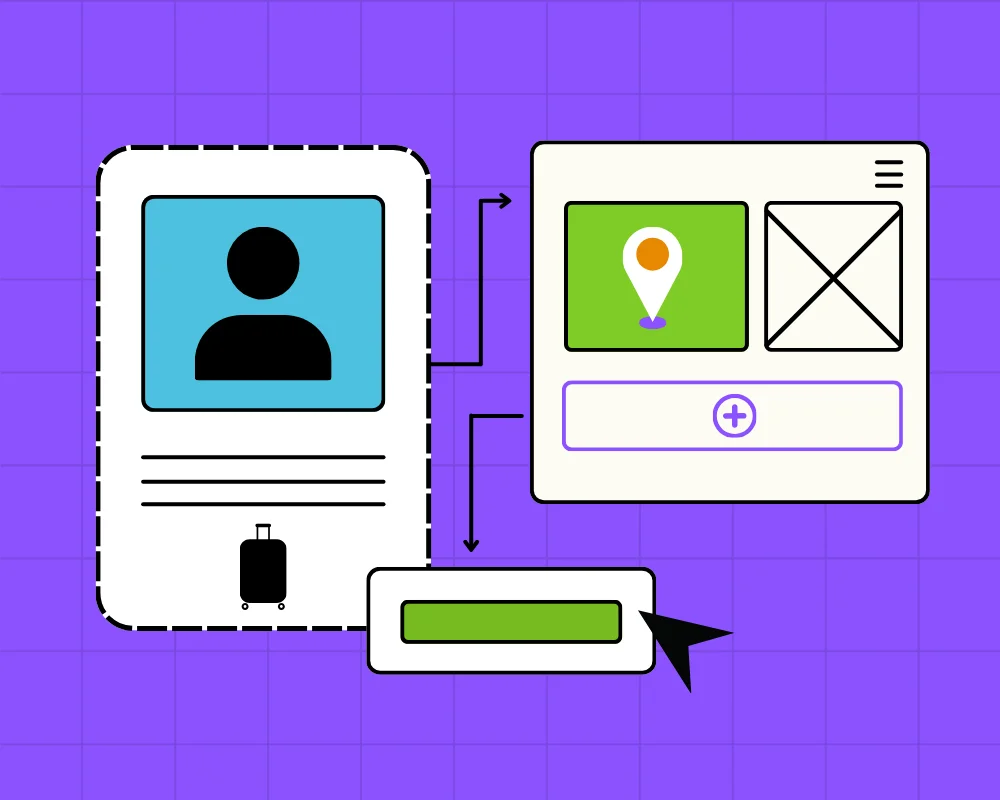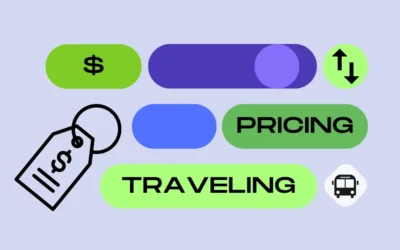We tell you why UX design helps deliver a smooth and enjoyable travel experience. Discover its importance in the travel industry.
The importance of ensuring an optimal experience for users using websites or apps in the travel industry cannot be underestimated. By focusing on creating an efficient and user-friendly platform, travel companies can offer an enjoyable and seamless travel experience to their customers and, at the same time, build trust and credibility.
This is why it is important to consider the user experience within the design and development of digital products implemented by the travel industry. These can be online points of sale such as eCommerce or Apps for selling airline or bus tickets, booking accommodations or contracting tour packages.
What is user experience?
UX, which stands for User Experience, refers to the way a person interacts and perceives usability, accessibility and satisfaction when using a product or service, such as a website, mobile application, software or any other digital system.
UX design, or user experience design, focuses on creating products that are intuitive, efficient and enjoyable to use for end users, taking into account their needs, wants and abilities. This involves research, design, evaluation and continuous iteration to improve the user experience over time.
The primary goal of UX is to ensure that any user gets maximum value and enjoys a positive experience when interacting with a digital product or service.
Why is it important in the travel industry?
UX is crucial in the travel industry because it determines user satisfaction when interacting with applications and platforms. In a highly competitive market like travel, delivering a seamless, intuitive and personalized experience is critical to stand out and retain customers. In addition, a well-designed UX can influence brand perception and purchase decisions, directly impacting the success of the business by increasing sales.
Here are the main advantages of UX in the travel industry:
- Facilitates booking and travel planning: A good UX design on websites or apps makes it easier to navigate, search and book tickets. This reduces friction and makes the process more streamlined and enjoyable for users.
- Improves customer satisfaction: A positive user experience increases customer satisfaction, which in turn can generate brand loyalty and recommendations to other travelers. This is crucial in a competitive industry such as travel.
- Build trust: Users tend to trust websites and apps that offer a smooth and intuitive user experience. Clear navigation, detailed information and secure payment options help build that trust.
- Adaptability to mobile devices: With the growth in the use of mobile devices to search and book travel, UX design must be responsive, i.e., adapt correctly to different screen sizes and deliver a consistent and functional experience on mobile devices.
- Personalization and recommendations: UX can help provide personalized recommendations based on the user’s preferences and search history, which improves the relevance of the options presented and facilitates decision-making.
How does Reservamos SaaS apply UX in its products?
As industry experts, by offering specialized technology to bus companies we consider UX important when designing products such as the eCommerce platform we offer to our allies.
At Reservamos SaaS, we recognize the importance of UX design in our products and work closely with our design team to ensure an exceptional user experience.
It’s part of the challenge of understanding users and delivering solutions that they really like and enjoy. For example, when the Product Design team receives a request from a partner for a product, the first step is to communicate with the design team.
Our teams have the expertise to consider usability and user experience as a whole. They evaluate whether the typography is appropriate and whether the workflow will allow users to follow the sequence they are familiar with, or enhance it, among other functionalities.
Better experiences for higher loyalty
The importance of user experience (UX) design in the travel industry is undeniable. By focusing on providing an efficient and user-friendly platform, companies can ensure an enjoyable travel experience for their customers, which in turn builds trust and credibility.
UX is not only about creating products that are intuitive and efficient, but also about understanding the needs and desires of users. In the travel industry, this translates into clear and simple navigation for booking flights, hotels and activities, as well as personalizing recommendations based on users’ individual preferences.
In short, UX is a fundamental element in the travel industry, and its effective implementation can make the difference between a positive and a frustrating experience for users. By prioritizing user-centered design, companies can stand out in a competitive marketplace and build strong relationships with their customers.




